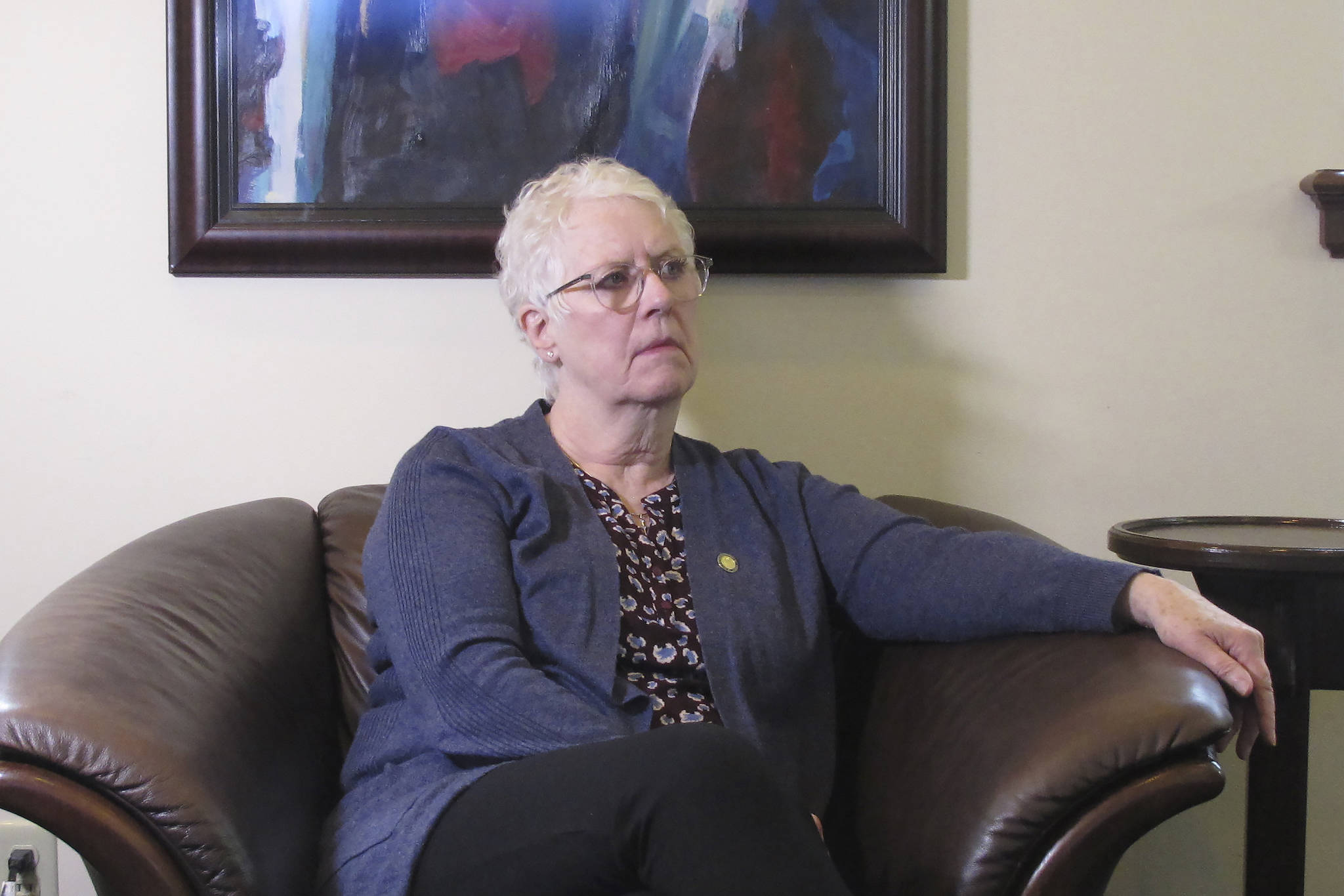By Becky Bohrer
Associated Press
Gov. Mike Dunleavy, faced with pressure from lawmakers, introduced a bill that would allow for payment of a dividend to residents this year. But it’s unclear yet what size check residents ultimately might get.
Dunleavy, in a bill outlined Thursday, proposed a payout of about $2,350. Lawmakers earlier this year proposed a dividend of about $1,100, but they tied strings to it and failed to win the necessary votes. Dunleavy vetoed the remnant $525 dividend, calling it a “joke.”
Dividends typically are paid out in the early fall.
Dunleavy has proposed a constitutional amendment that calls for restructuring the oil-wealth permanent fund, limiting withdrawals and putting half of what’s withdrawn from the fund toward dividends. He wanted lawmakers to take up the proposal before moving on to other items during the special session that started Monday, after budget debates consumed the prior two special sessions this year.
But some legislative leaders have said they didn’t see the votes for the proposed constitutional amendment, and some lawmakers didn’t agree with his approach.
The House Finance Committee heard the spending bill Friday, scheduling a meeting shortly after Dunleavy added the bill to the session agenda Thursday.
Debate over how much to pay in dividends has become divisive in recent years and overshadowed other issues. Lawmakers and Dunleavy have said they want to resolve the debate but haven’t agreed yet on how to do so.
House Speaker Louise Stutes, in a letter to Dunleavy on Monday, urged him to add a spending bill to the session agenda to deal with this year’s dividend and other budget items. She said the bipartisan majority coalition she leads was “steadfast regarding the need for a comprehensive fiscal solution, including only overdrawing the ERA if tied to said solution, and we have been working in good faith to that end.”
ERA refers to the permanent fund earnings reserve account. Earnings traditionally have been used to pay yearly dividends to residents but in 2018, amid a years-long run in deficits, lawmakers began using earnings to help pay for government. They also sought to limit withdrawal amounts for those uses.
Dunleavy is proposing drawing $3 billion from earnings as part of the spending bill. Alexei Painter, director of the Legislative Finance Division, said this would exceed the withdrawal amount that had been set for this fiscal year.
About half the $3 billion would go toward dividends and the rest to a budget reserve account, which Dunleavy said would help provide “bridge funding” while components of a fiscal plan are implemented.
Lawmakers are just beginning to delve into policy recommendations from a working group that was made up of two members from each caucus. The work group agreed to a list of elements they deemed necessary for a comprehensive fiscal package. Members also agreed a solution “must be negotiated and agreed to as whole” and not taken up piecemeal.
“I can tell you this: We’re moving in the same direction, we’re working hard to find a compromise and we are anticipating that things are going to move forward in a comfortable way,” Stutes told reporters Friday.
She spoke of the possibility of paying a dividend that would not require exceeding the withdrawal amount while working toward a fiscal plan.
“I would think that that would be the avenue … . Let’s get something solid out now, so Alaskans know what they can count on and when we get the rest of the package together, it will be like a bonus. It will be a true dividend,” she said.
Rep. Adam Wool, a Fairbanks Democrat, asked Dunleavy’s budget office director, Neil Steininger, Friday what the maximum amount for a dividend this year would be without dipping further into fund earnings.
Steininger noted that Dunleavy has put forward a dividend proposal and as an alternative would support a payout in line with a long-standing formula in law last used in 2015.
What Wool asked about “really isn’t something that, from (a) policy perspective, this administration supports or models,” he said.
Painter said using estimated surplus funds available after Dunleavy’s vetoes, a dividend would be just under $800 a person.

